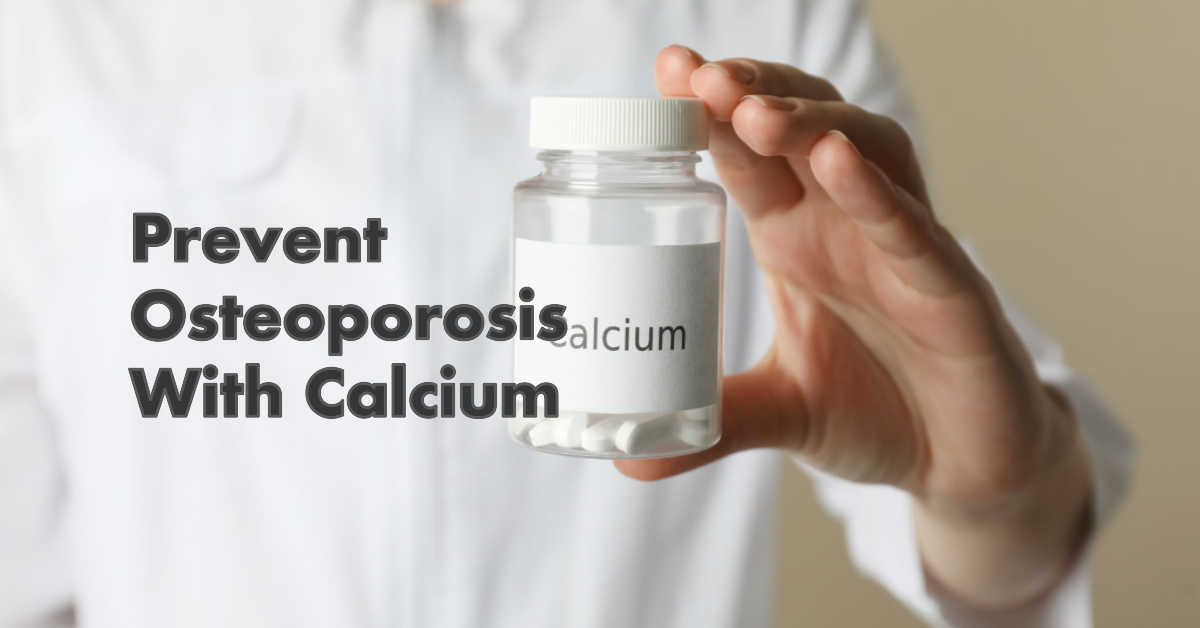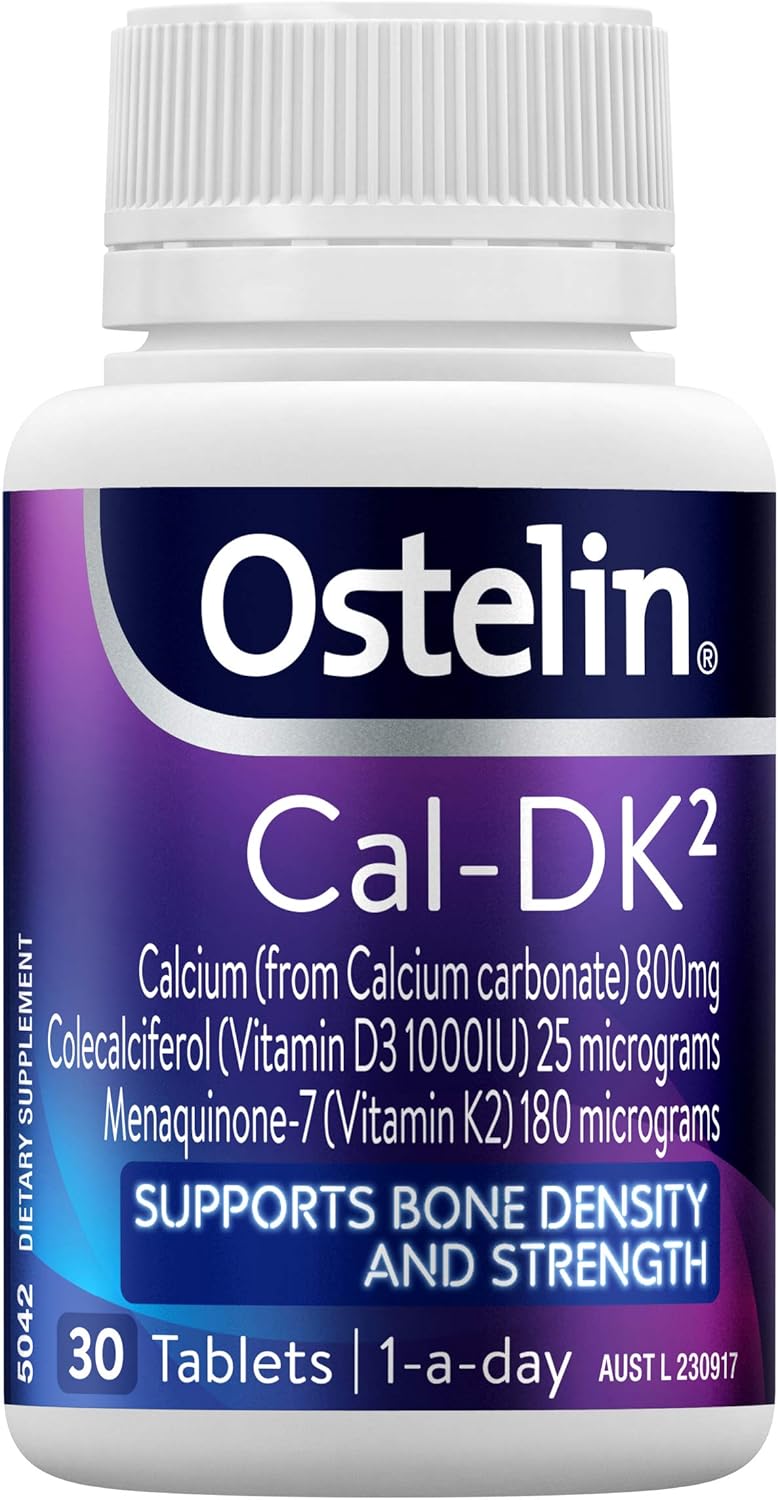Introduction
Have you ever wondered how calcium can help prevent osteoporosis in women? In this article, we will explore the importance of calcium in maintaining strong and healthy bones. Osteoporosis is a common condition that affects women, especially as they age, leading to weak and brittle bones. By understanding how calcium plays a vital role in preventing this condition, you can take proactive steps to ensure optimal bone health as you grow older. So, let’s dive into the world of calcium and unlock the secrets to safeguarding your bones.
Factors Contributing to Osteoporosis in Women
Osteoporosis is a condition characterized by low bone density and weakened bones, making individuals more susceptible to fractures. Although osteoporosis can affect both men and women, women are more commonly affected due to several contributing factors.
Hormonal Changes
One of the primary factors contributing to osteoporosis in women is hormonal changes, especially during menopause. Estrogen, a hormone that helps maintain bone density, decreases significantly during menopause. This decline in estrogen levels leads to a higher rate of bone loss, making postmenopausal women more vulnerable to osteoporosis.
Osteoporosis in women is often linked to a deficiency in essential minerals. This supplement not only provides calcium but also other vital minerals that synergistically work to fortify bones and prevent bone loss. It’s a comprehensive solution for women aiming to combat osteoporosis.
Age
Another significant factor that increases the risk of osteoporosis in women is age. As women get older, their bodies naturally undergo bone loss, typically starting in their 30s or 40s. This age-related bone loss accelerates significantly after menopause due to hormonal changes, further increasing the risk of osteoporosis.
Genetics
Genetics also play a role in the development of osteoporosis in women. Some people may have a genetic predisposition to lower bone density, which can increase their chances of developing osteoporosis. If someone in your family has been diagnosed with osteoporosis, it is essential to be aware of this increased risk and take preventive measures.
Lifestyle Choices
Certain lifestyle choices can contribute to the development of osteoporosis in women. Factors such as smoking, excessive alcohol consumption, sedentary lifestyle, and poor nutrition can all negatively impact bone health. It is crucial to make conscious choices that support bone health to reduce the risk of osteoporosis.
Understanding Osteoporosis
Definition
Osteoporosis is a condition characterized by low bone density and structural deterioration of bones. It occurs when the body fails to form enough new bone or loses too much old bone. As a result, the bones become weak and fragile, making individuals more susceptible to fractures, even from minor falls or injuries.
Causes
There are several factors that can contribute to the development of osteoporosis. Hormonal changes, age, genetics, and certain medical conditions are some common causes. Additionally, a lack of essential nutrients like calcium and vitamin D can also lead to weakened bones and increase the risk of osteoporosis.
Osteoporosis in women is often linked to a deficiency in essential minerals. This supplement not only provides calcium but also other vital minerals that synergistically work to fortify bones and prevent bone loss. It’s a comprehensive solution for women aiming to combat osteoporosis.
Symptoms
Osteoporosis is often referred to as a “silent disease” because it does not typically cause noticeable symptoms in the early stages. However, as the condition progresses, individuals may experience symptoms such as back pain, loss of height over time, stooped posture, and an increased frequency of fractures. It is crucial to be aware of these symptoms and seek medical attention if necessary.
Role of Calcium in Bone Health
Importance of Calcium
Calcium is an essential nutrient for overall bone health. It is a primary building block of bone tissue and plays a significant role in maintaining bone density and strength. Adequate calcium intake throughout life is vital to prevent the development of osteoporosis.
Calcium Absorption and Metabolism
The body absorbs calcium in the small intestine, primarily in the presence of vitamin D. Once absorbed, it is utilized by various tissues and organs, including bones. However, calcium metabolism is a complex process that is regulated by several hormones and enzymes in the body to maintain the balance of calcium levels.
Calcium-Rich Foods
To ensure sufficient calcium intake, it is essential to incorporate calcium-rich foods into your diet. Dairy products like milk, cheese, and yogurt are excellent sources of calcium. Additionally, leafy green vegetables, fortified plant-based milk alternatives, and certain types of fish (such as salmon and sardines) are also good sources of dietary calcium. It is recommended to consume these foods regularly to support bone health.
For women who are keen on natural sources of calcium, this product is an excellent choice. Derived from quality sources, it ensures that your body gets the best form of calcium, aiding in the prevention of osteoporosis and ensuring robust bone health.
Mechanism of Calcium in Preventing Osteoporosis
Bone Formation and Remodeling
Calcium plays a crucial role in bone formation and remodeling. Throughout life, bones constantly undergo a process called remodeling, where old bone tissue is broken down and replaced with new bone tissue. Adequate calcium levels are necessary for this process to occur efficiently and maintain the integrity and strength of the bones.
Calcium’s Role in Regulating Bone Mass
Calcium also acts as a regulator of bone mass. When calcium levels in the blood are low, the body may start to release calcium from the bones, leading to bone loss. By ensuring an adequate calcium intake, you can help prevent excessive calcium loss from bones and maintain optimal bone mass.
Preventing Bone Loss
One of the primary mechanisms by which calcium prevents osteoporosis is by reducing the rate of bone loss. Adequate calcium intake throughout life helps slow down the natural bone loss that occurs with age. This preventive effect is particularly crucial for postmenopausal women, as they are at a higher risk of accelerated bone loss due to hormonal changes.
Recommended Calcium Intake for Women
Age-Specific Calcium Requirements
The recommended calcium intake for women varies depending on age and life stage. The National Institutes of Health (NIH) provides general guidelines for daily calcium intake:
- 1,000 milligrams (mg) per day for women aged 19-50 years.
- 1,200 mg per day for women over 50 years and postmenopausal women who are not taking hormone replacement therapy.
It is important to note that these are general recommendations, and individual needs may vary. Consulting with a healthcare professional can help determine the appropriate calcium intake for your specific circumstances.
Calcium Supplements
In some cases, it may be challenging to meet the recommended calcium intake solely through dietary sources. In such situations, calcium supplements can be a beneficial addition to your routine. These supplements come in various forms, such as calcium carbonate and calcium citrate, and can help bridge the gap between dietary calcium intake and recommended levels. However, it is crucial to consult with a healthcare professional before starting any supplementation regimen to ensure it is suitable for you.
Vitamin D is crucial for calcium absorption. This product combines the benefits of both, ensuring that the calcium you intake is effectively absorbed and utilized by the body. For women, this means stronger bones and a reduced risk of osteoporosis as they age.
Other Nutrients Necessary for Bone Health
Vitamin D
Vitamin D is essential for the absorption and utilization of calcium in the body. It helps regulate calcium levels, promotes calcium absorption in the intestines, and supports calcium deposition in the bones. Adequate vitamin D levels are necessary to maximize the benefits of calcium intake and maintain optimal bone health.
Magnesium
Magnesium is another mineral that plays a vital role in bone health. It is involved in the formation of bone tissue and contributes to the activation of vitamin D, which is necessary for calcium absorption. Incorporating magnesium-rich foods like nuts, seeds, legumes, and whole grains into your diet can help support bone health.
Vitamin K
Vitamin K is known for its role in blood clotting, but it also plays a crucial role in maintaining bone health. This vitamin assists in the synthesis of specific proteins needed for bone formation and mineralization. Leafy green vegetables, broccoli, and Brussels sprouts are good dietary sources of vitamin K.
Phosphorus
Phosphorus is the second most abundant mineral in the body after calcium and is essential for bone health. It is a key component of hydroxyapatite, a mineral complex that gives strength and structure to bones. To ensure sufficient phosphorus intake, include foods such as lean meats, dairy products, and nuts in your diet.
Dietary Tips for Maintaining Bone Health
Balanced Diet with Calcium-Rich Foods
A balanced diet that includes a variety of calcium-rich foods is crucial for maintaining bone health. Along with milk and other dairy products, incorporate leafy green vegetables, fortified plant-based milk alternatives, and fish with edible bones into your meals. Ensuring a diverse and nutrient-rich diet can provide the necessary calcium and other essential nutrients for optimal bone health.
Combining Nutrients for Optimal Absorption
In addition to meeting calcium requirements, it is important to consider the absorption of calcium. Certain nutrients, such as vitamin D, magnesium, and vitamin K, work synergistically with calcium to maximize its absorption and utilization in the body. Therefore, make an effort to include a variety of foods rich in these nutrients to support efficient calcium absorption.
Any Questions🤔?
Reach out to us! We’re here to clarify and prioritize your well-being. 🌟
Avoiding Bone-Detrimental Habits
Certain habits can have a detrimental effect on bone health and increase the risk of osteoporosis. Smoking, excessive alcohol consumption, and consuming high amounts of caffeine can interfere with calcium absorption and contribute to bone loss. Minimizing or avoiding these habits can help protect bone health and reduce the risk of osteoporosis.
Exercise and Physical Activity for Bone Health
Weight-Bearing Exercises
Engaging in weight-bearing exercises is crucial for maintaining bone health. These exercises put stress on the bones, stimulating them to become stronger and denser. Examples of weight-bearing exercises include brisk walking, jogging, dancing, and aerobics. Aim for at least 150 minutes of moderate-intensity aerobic activity or 75 minutes of vigorous-intensity activity per week to support bone health.
Resistance Training
Resistance training, also known as strength training or weightlifting, is another essential component of a bone-healthy exercise routine. It involves working against resistance, such as using free weights, resistance bands, or weight machines. Resistance training helps build and maintain muscle strength, which is important for bone health and overall mobility.
A holistic approach to bone health is essential. This supplement offers a blend of calcium and other bone-supporting nutrients, making it a top choice for women who want to ensure they’re doing everything they can to prevent osteoporosis and maintain bone density.
Balance and Flexibility Exercises
Balance and flexibility exercises may not directly affect bone density, but they are essential for preventing falls and maintaining overall physical function. Falls can be particularly dangerous for individuals with osteoporosis due to the increased risk of fractures. Engaging in activities like yoga, tai chi, and balance exercises can improve coordination, flexibility, and stability, reducing the risk of falls and related injuries.
Lifestyle Changes to Support Bone Health
Quit Smoking
Smoking has been shown to have detrimental effects on bone health. It reduces bone density, impairs bone formation, and increases the risk of fractures. Quitting smoking is not only beneficial for overall health but also plays a significant role in preserving bone health and reducing the risk of osteoporosis.
Limit Alcohol Consumption
Excessive alcohol consumption can negatively affect bone health. It interferes with calcium absorption, impairs bone formation, and increases the risk of fractures. Limiting alcohol intake to moderate levels (up to one drink per day for women) can help protect bone health.
Maintain a Healthy Weight
Maintaining a healthy weight is crucial for overall health, including bone health. Both excess weight (obesity) and insufficient weight (underweight) can adversely impact bone density and increase the risk of osteoporosis and fractures. Aim for a healthy body weight through a balanced diet and regular exercise to support optimal bone health.
The Importance of Early Prevention and Treatment
Regular Bone Density Tests
Early detection is key in the prevention and treatment of osteoporosis. Regular bone density tests, such as dual-energy X-ray absorptiometry (DXA) scans, can evaluate bone density and identify the presence of osteoporosis or determine the risk of developing it. Consult with your healthcare provider to determine how often you should undergo bone density tests based on your age, risk factors, and previous test results.
Medical Interventions
In some cases, lifestyle changes and dietary modifications may not be sufficient to prevent or manage osteoporosis. In such situations, medical interventions may be necessary. Medications such as bisphosphonates, hormone therapy, and selective estrogen receptor modulators (SERMs) may be prescribed to slow down bone loss, increase bone density, and reduce fracture risk. It is important to work closely with a healthcare professional to determine the most appropriate treatment options for your specific needs.
Supportive Care
Supportive care plays an essential role in managing osteoporosis and preventing complications. This includes measures such as fall prevention strategies, assistive devices (if necessary), and physical therapy to maintain strength, balance, and mobility. Additionally, support groups and educational resources can provide valuable information and emotional support for individuals living with osteoporosis.
In conclusion, osteoporosis is a condition that can significantly impact women’s bone health, but it is also highly preventable and manageable. By understanding the contributing factors, the role of calcium and other essential nutrients, adopting a bone-healthy diet and lifestyle, engaging in regular exercise, and seeking appropriate medical care, women can take proactive steps to maintain optimal bone health throughout their lives. Early prevention and treatment are essential to minimize the impact of osteoporosis and preserve bone density, promoting a healthier and more fulfilling life.








